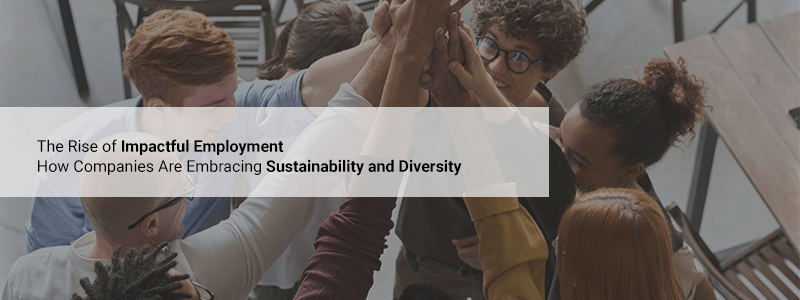How Companies Are Embracing Sustainability and Diversity
In today’s rapidly evolving world, the role of businesses extends far beyond profit generation. Increasingly, companies are recognizing their responsibility to positively impact society and the environment. This shift towards impactful employment is transforming the way organizations operate, with sustainability and diversity at the forefront.
Sustainability has become a buzzword in the corporate world, and for good reason. With climate change looming large and environmental degradation threatening ecosystems worldwide, businesses are under pressure to minimize their ecological footprint. From reducing carbon emissions to implementing eco-friendly practices throughout their supply chains, companies are making strides towards a more sustainable future.
Sustainability goes beyond environmental efforts, it encompasses social and economic factors as well. Companies are increasingly mindful of their social responsibility, striving to improve the well-being of communities where they operate. This includes initiatives such as fair labor practices, philanthropy, and community development projects.
Diversity and inclusion have gained prominence in recent years, as organizations recognize the value of a diverse workforce. Beyond being a moral imperative, diversity fosters innovation, creativity, and better decision-making. Companies that embrace diversity not only attract top talent from diverse backgrounds but also gain a competitive edge in today’s global marketplace.
Interestingly, sustainability and diversity are closely intertwined. Companies that prioritize diversity tend to be more socially conscious and environmentally responsible. By embracing both sustainability and diversity, companies can create a virtuous cycle of positive impact that extends beyond their bottom line.
The rise of impactful employment represents a paradigm shift in the business world, where companies are no longer solely focused on profit maximization. By embracing sustainability and diversity, organizations can create value for society, the environment, and their stakeholders. As consumers and investors increasingly demand ethical and responsible practices, companies that fail to adapt risk being left behind. In this new era of business, success is not just measured in profits, but in the positive impact we make on the world.
Author: Laura Lirette
